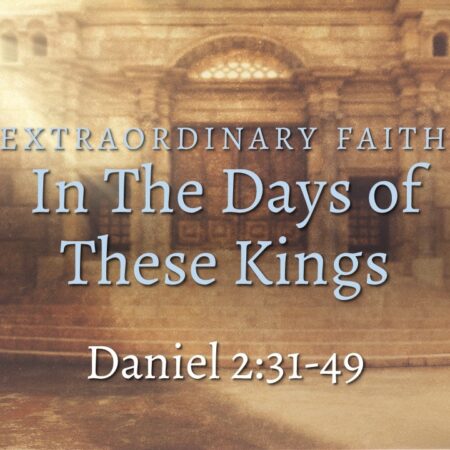Daniel 2:31-49
2 Peter 1:19-21
Daniel 2:29-30
Matthew 6:9-13
Daniel 2:35
Psalm 1:4-5
Psalm 2:8-9
John 5:20-24
Professor and Biblical scholar Leon J. Wood published in 1979 the book titled” THE PROPHETS OF ISRAEL”.
“Prophets did not come to office by inheritance, having been born into a prophetic tribe or family; nor was a son of a former prophet automatically made a prophet because he was the son of such a person. Each prophet was selected by God and called to a work God had for him to do.
In this, prophets differed markedly from priests in Israel. Priests did receive their office by inheritance.
One reason why an inheritance relationship was not suitable for the prophets was that each had to be a special kind of person. Not just anyone would do. The priestly office did not find this nearly so true. A weak son could still carry on rather well, for the work was quite routine. And one may expect that there were some mediocre priests, who functioned simply because they had become priests by inheritance.
The prophet, however, did not act by pattern. Even when God gave him instructions as to his work and the course he was to take, that course often carried with it a great challenge.
He had to be prepared for suffering and injustice as well as ease and plaudits. He had always to be an individualist in courage and ingenuity. There was no room for mediocrity.”
John Lennox in his book “Against the Flow” makes this observation:
“The metals are not simple code. They are symbols embodying metaphors that help us to understand some important aspect of the empire they represent.
The metals, with their different relative strengths and values, highlight the fact that empires differ in both relative value and relative strength.
It could not have been easy to get that message across to an emperor like Nebuchadnezzar.
One reason is that the vast majority, if not all, of these rulers regarded themselves as chosen by the gods (in extreme cases, they regarded themselves as gods), so that their rule was by definition the best there could be.
In more recent times many of the power brokers of this world, whether they claimed to believe in the divine or not, have been all too convinced of the absolute nature of their rule, often with horrific consequences for their citizens.”
Historian Herbert Butterfield published in 1957 the book titled:
“Christianity and History”
“There seems to be one fundamental law of a very solemn kind which touches this question of judgment; and when I turn to the ancient prophets and recall the limited area of history they had at their disposal for making inductions, I am always surprised at the curious aptness with which they seem to have found the formula in this connection – a formula which they put in a special position of priority. Judgment in history falls heaviest on those who come to think themselves gods, who fly in the face of Providence and history, who put their trust in man-made systems and worship the work of their own hands, and who say that the strength of their own right arm gave them the victory.”
“Sir, we will always humbly reverence your majesty in public; but since we have this occasion to be with your Majesty in private…we must discharge our duty, or else be traitors both of Christ and you.
Therefore, Sir, at diverse times I have told you, so now again I must tell you. There are two kings and two kingdoms in Scotland. There is King James, the Lord of the Commonwealth, and there is Christ Jesus, the King of the Church, whose subject James the Sixth is, and of whose kingdom he is not a king, nor a lord, nor a head.
We will yield to you your place, and give you all due obedience, but again
I say; You are not the head of the church; you cannot give us that eternal life that we seek for even in this world, and you cannot deprive us of it.” Andrew Melville

